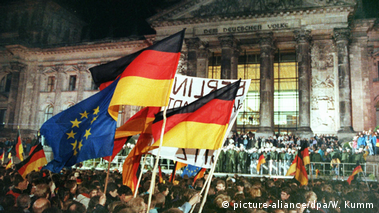
Over three decades after the fall of the Berlin Wall, Germany is politically unified, but dividing lines remain, the Minister of State for East Germany told DW. “Reunification is completed, even if it is not perfect,” said Carsten Schneider, adding that reunification needed to be fully realized in people’s minds.
The government’s commissioner for eastern Germany spoke to DW on the release day of the annual report on the state of German unity, just before the country celebrates its 33rd Reunification Day on October 3.
Is there a wealth gap between western and eastern Germany?
Schneider highlighted that pension levels were adjusted to be equal across Germany in 2023 as one of the main successes of the last year. Pension inequalities had been a long-standing grievance for many people in the former communist German Democratic Republic (GDR). While increasing the federal minimum wage also benefited employees in the German states that used to make up East Germany, “there are still differences in wages and wealth,” Schneider admitted.
In 2022, the average annual salary in western Germany was more than €12,000 ($12,670) higher than in eastern Germany. Net savings figures reveal an even starker inequality — in 2021, median savings in western states were nearly three times as high (€127,900 ) as in eastern ones, according to the German Federal Bank. Read more here
Watch how Germany celebrates unity amid feelings of division